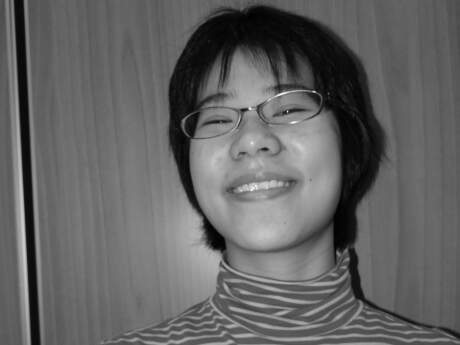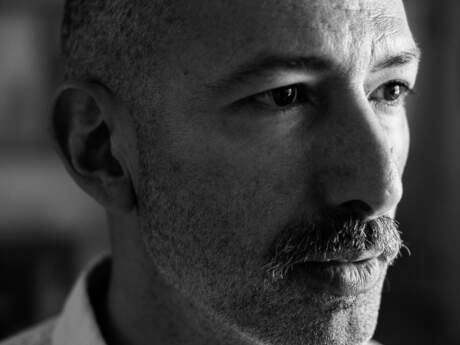Interviews
On Poetry Readings: An Interview with Noah Falck
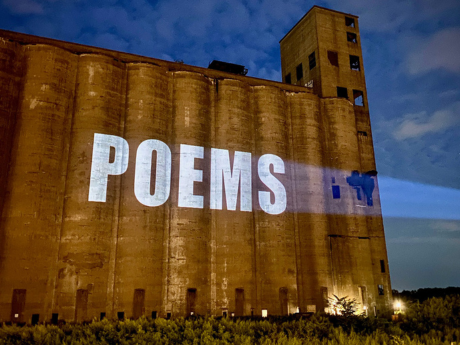
Ode to Silo City
by Philip Metres
O grain grown
gone as rain
O tract of weed
& crack concrete
silos your eyes
climb & widen
our ears & rove
inchoate echo
quieter the voice
easier to hear
you opposite
of paper press
onto the oppo
site of ink
rise from the rude
& brutalist rust
into the gentle
ghost-grain future
into this rusted
wind-ached throat
open to open
these loud clouds
The Silo City Reading Series is a multimedia poetry event series presented by Just Buffalo Literary Center. It was founded and is curated by Noah Falck, who works as literary director at Just Buffalo.
Since the series started in 2013, many poets have taken the wooden pallet stage on the cold concrete floors of the 120-foot-high abandoned grain silo at the edge of the Buffalo River. Their eyes are automatically drawn upward to the height of the silo, then to eye level, where a captive and crowded Buffalo audience awaits their words. What happens next is the magic of poetry, music, and art that some call a must-see, and many have called their most memorable reading experience.
Going into its 12th season, Noah Falck and a handful of poets (Philip Metres, Hanif Abdurraqib, Vievee Francis, Richie Hofmann, Natalie Shapero, and Mathias Svalina) who have read in this series reflect on how and why this series has stood the test of time. Some may say it is just getting started.
Philip Metres: When did the dream first come to you?
Noah Falck: The dream came during the very first event, on May 4, 2013, which was planned as a one-off book release celebration for Joe Hall’s The Devotional Poems. It was only after that reading that I realized how extraordinary it all was, how singular of an experience to hear poems read aloud inside a massive grain silo at the edge of the Buffalo River.
Hanif Abdurraqib: How do you feel like the series (emotionally and/or materially) pays homage to the very specific history of grain and grain elevators in Buffalo?
Noah Falck: This is best answered by referencing a note Zachary Schomburg sent me after he read in the silos back in June of 2015, he said, “Because of the Silo City Reading Series, there is now as much beauty and language inside these silos as there ever was grain.” I love that so much and realize how fortunate we’ve been to activate these historic structures, that at one time held the wheat and grain that helped feed the country, and now holds the words of some of our most cherished living poets. That alone is emotional for me. The idea of the silos being a container of hope, a container for poetry.
Vievee Francis: The silo is one of the most powerful sites I have ever read for/in. The weight above, for me, paralleled the gravitas of the poetry I read and the poetry I’ve heard there. So many of the poets who read there seem to be on personal journeys and/or tackling social issues. Where is the intersection between poetry and community for the Silo City Reading Series?
Noah Falck: The reading series wouldn’t exist without community. We structured it so that it wasn’t just poets reading to other poets, which I think is often the case in most reading series, which is cool and necessary, but we wanted to open it up and play with the idea of who a reading series could engage.
I think the strength of any real community or project lives in its diversity. From the very beginning, we invited artists from a variety of disciplines—the musicians, the painters, the filmmakers, the photographers, the dancers (this summer, the rollerskaters)—to be presented alongside the poets. It was a way to highlight/showcase/uplift the local working artists of Buffalo but also bring those creative doers and makers together in one space where new conversations and understandings would emerge.
Richie Hofmann: What interesting resonances have you found between music and poetry in that space?
Noah Falck: Because the run-of-show is a local poet followed by a musical act followed by a visiting poet, there is, at times, a slight tension or performance pressure between the poets and the musical acts.
I recall a reading by Peter Gizzi who had to read after the bluesy punk rock singer-songwriter Shilpa Ray, who belted out her songs while hand-pumping a harmonium. Her voice beautifully haunted the silos.
Gizzi came up to me after Shilpa’s set and whispered, “How the hell am I supposed to follow that?”
But follow it he did, in a way that only Gizzi could. He kicked off his reading with the poem “Heroes” by Robert Creeley:
In all those stories the hero
is beyond himself into the next
thing.
It was really powerful for a number of reasons, but mainly because sitting in the audience that evening was Penelope Creeley, Robert Creeley’s widow. It still gives me chills today.
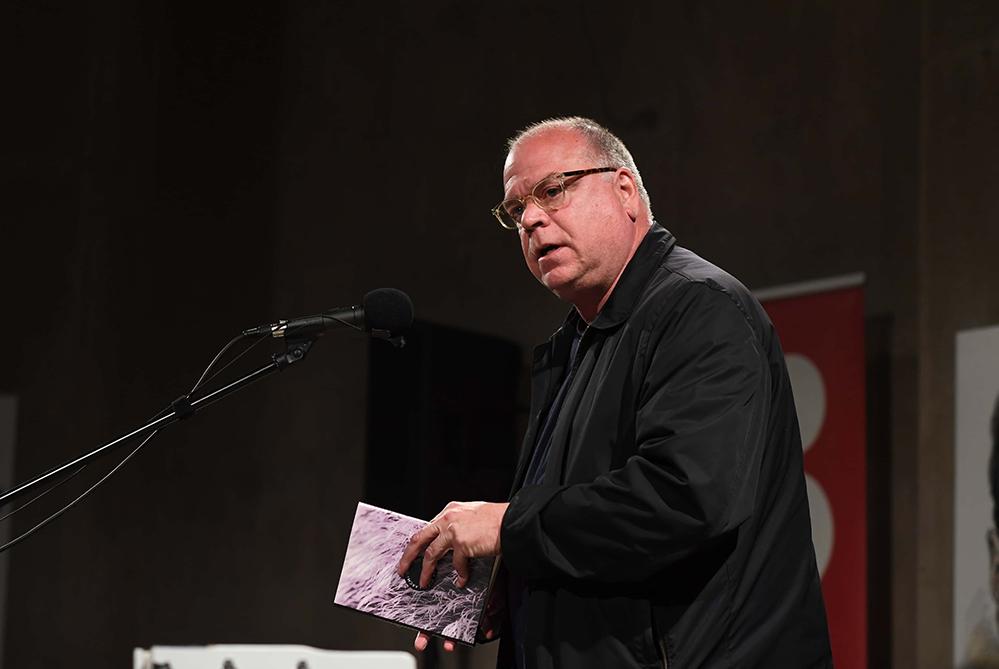
Hanif Abdurraqib: I am obsessed with sound and acoustics, which leads me to ask what sounds come alive for you inside the physical structure of the building that you think could not come alive anywhere else?
Noah Falck: Like you, Hanif, I’m a deep believer in the power of music—both in poetry and song. The silos have an eight-second natural reverb and immediately become a dream space for nearly every musician and poet who comes to perform. They become children again for a minute—they howl and clap and whistle, which is a natural response when you walk into the belly of a 120-foot-high post-industrial cathedral.
For me, it’s always the voice that becomes most alive, most notable. I’ll never forget when Ocean Vuong read from Night Sky with Exit Wounds and how he had the entire audience completely entranced. Ocean is such a gentle and soft reader, and even though we didn’t have him mic’d up, he had the entire audience holding on to every word. It was astonishing.
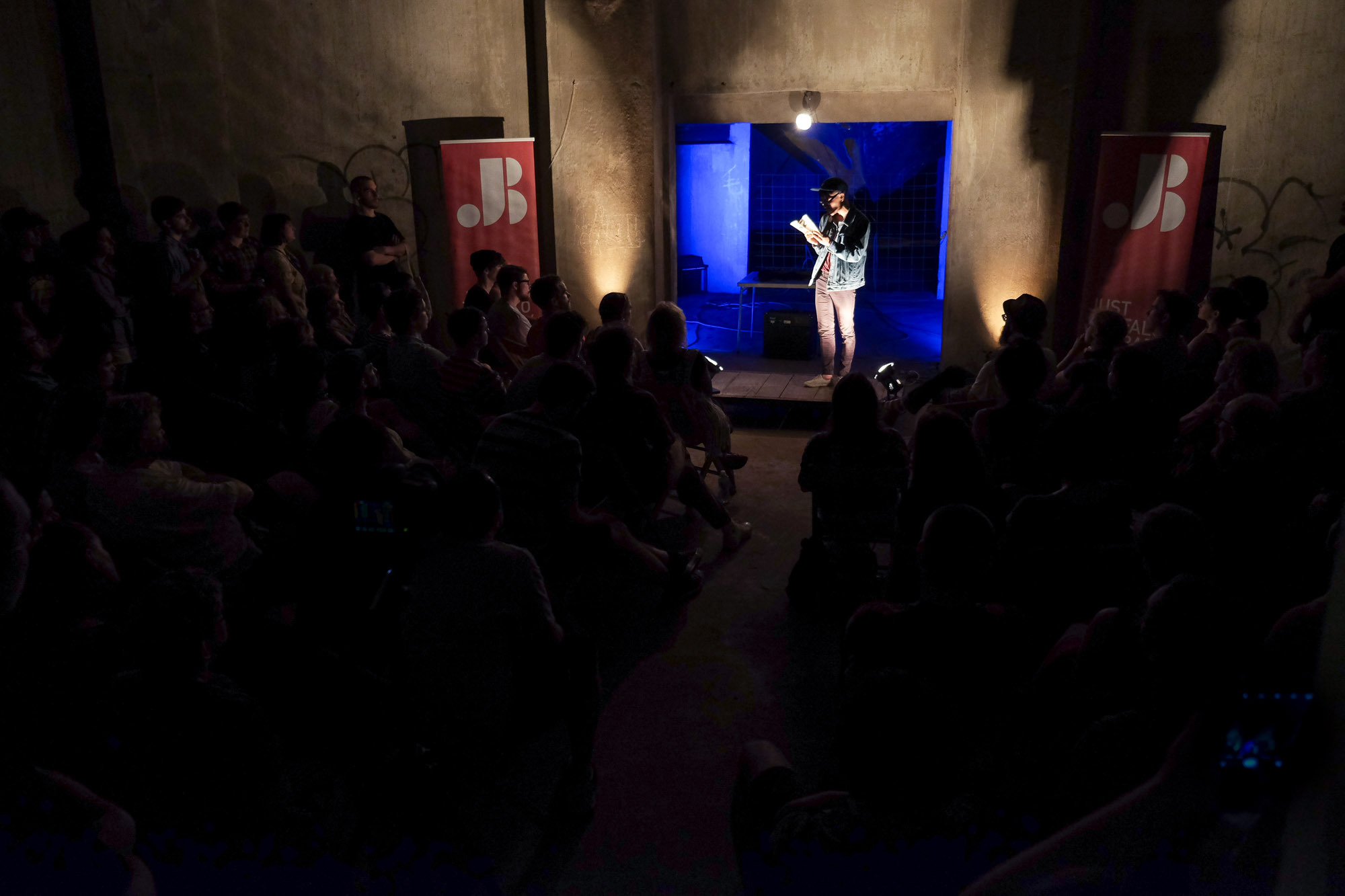
Natalie Shapero: What is something that happened in or around the silos that hit you as a surprise?
Noah Falck: I’m surprised or in awe every time I go down to the silos. However, one instance jumps out at me. In June of 2019, a major rainstorm hovered over the silos right as we were about to begin. It was raining sideways and what felt like upside down inside the grain silo. It was cold and windy and wet and then the power went out.
It was completely dark with about 80 or so people sitting in their folding chairs under an indoor rainstorm. Some had umbrellas, many were soaking wet.
In a panic, I ran to the storage room where the main power breaker lives. There was about half a foot of water pooling on the floor, and our event technician, Kevin Cain, asked if he should unplug and quickly plug back in the power. I thought he was joking, but without hesitation he unplugged the main powerline and jammed it back in. A few seconds later we heard cheering and clapping.
I walked back into the main silo where the lights had come back on. The storm had moved along, and there was a renewed feeling in the air. Then, the singer-songwriter Simon Joyner took the stage and performed a remarkable acoustic set accompanied by violinist Megan Siebe.
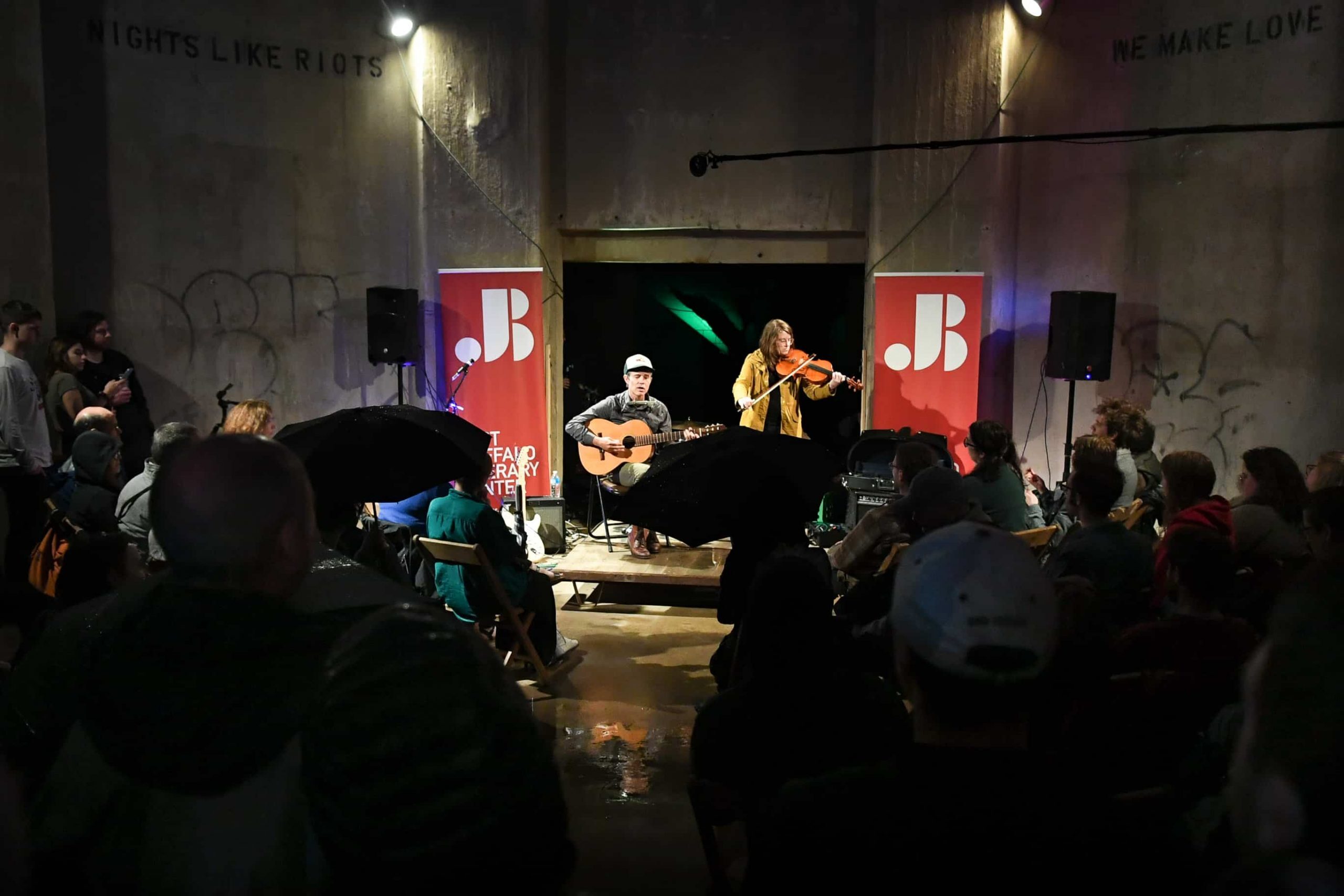
I was completely surprised that (1) people stayed through a torrential downpour, (2) that the power actually came back on, and (3) that the band was still able and willing to perform.
Mathias Svalina: Having hosted so many events in the silos, what feels like ritual or paying homage to you now?
Noah Falck: My friend Swannie Jim Watkins, the original caretaker of the silos, who lived in a small shack next to the silos for many years, would often describe this unusual spiritual aura that exists at the bend of the river where the silos stand. It’s there. I’ve felt it. I think acknowledging that spirit and the histories surrounding the site are part of a ritual of appreciation, respect, and care. As well as the constant feeling of awe.
Hanif Abdurraqib: What dreams do you have for the life of this series over the next five or ten years?
Noah Falck: The forever dream for the reading series has been to try to create an experience at a poetry reading that will change how people think about the art form. An event that tries to break the image in the mind of what a “traditional” poetry reading looks like, just like the best poems do.
And I think we’ve slowly begun to realize it, because we’ve had some incredibly talented poets, musicians, and artists participate. In the years ahead, we want to keep evolving or keep becoming. We want to grow and adapt with the site, and ultimately raise an awareness that Buffalo is a place for poetry, or at least a place for poems.
“Ode to Silo City” by Philip Metres (originally published in issue 64 of Plume) and reprinted with permission.
Peter Gizzi (photo credit: Pat Cray); Ocean Vuong (photo credit: Joel Brenden); Simon Joyner & Megan Siebe (photo credit: Nancy J. Parisis); Poems Projected on Silo (photo credit: Noah Falck)

